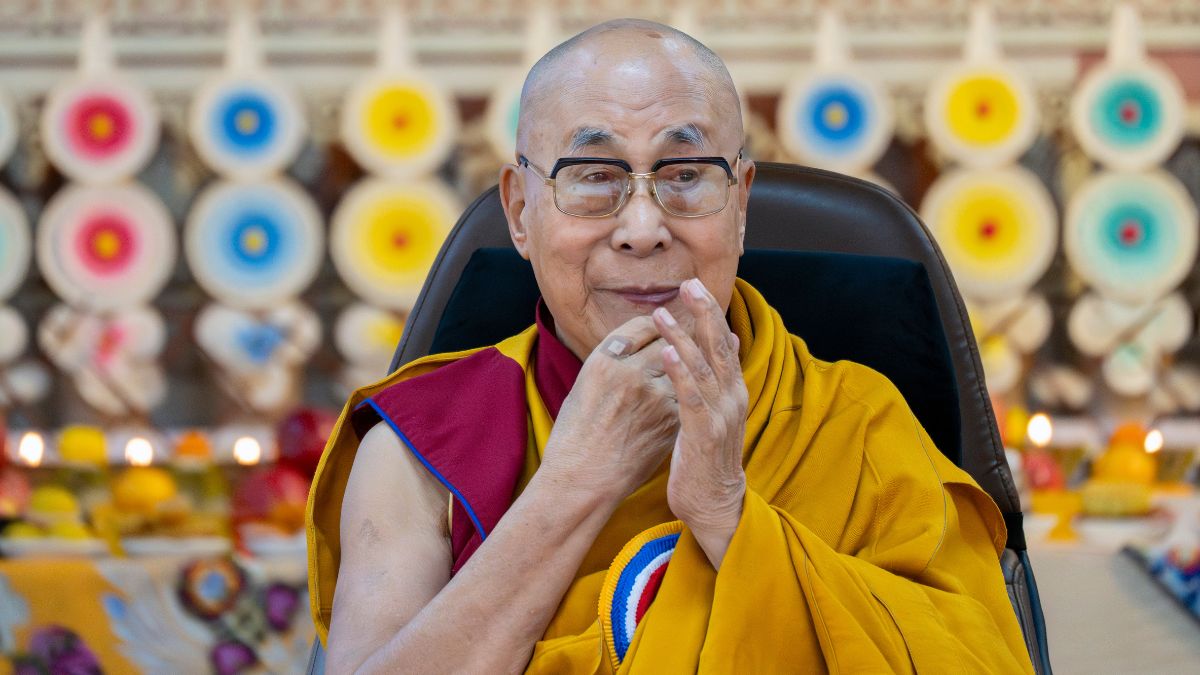

The Dalai Lama's succession has once again become a contentious issue between China and India, casting a shadow over a planned ministerial visit. The Chinese embassy in New Delhi has asserted that the succession of the Tibetan spiritual leader is a "thorn" in China-India relations. This statement comes as India's foreign minister prepares to visit China for the first time since the deadly border clashes of 2020.
The Dalai Lama, who recently celebrated his 90th birthday, has stirred controversy by stating that China has no role in his succession. While Tibetans believe in the reincarnation of senior Buddhist monks, China insists that the Dalai Lama's succession must be approved by its leaders. This stance is viewed by many as an attempt by China to control Tibetan Buddhism and exert its authority over the region.
India's official position, as stated by its foreign ministry on July 4th, is that it does not take a position on matters concerning religious beliefs and practices. However, the presence of the Dalai Lama, who has been living in exile in India since 1959 after a failed uprising against Chinese rule in Tibet, gives New Delhi leverage against China, according to Indian foreign relations experts. India is also home to approximately 70,000 Tibetans and a Tibetan government-in-exile.
Adding to the tension, a Chinese embassy spokesperson, Yu Jing, criticized "improper remarks" made by some Indian strategic affairs analysts and a government minister regarding the Dalai Lama's succession. Yu Jing reiterated China's stance that the reincarnation and succession of the Dalai Lama is an internal affair of China. They also cautioned that playing the "Xizang card" would ultimately backfire on India.
Despite these disagreements, there have been some recent signs of improvement in China-India relations. In June, India's defense minister visited China for the first time since 2020. Additionally, China allowed Indian pilgrims to return to Tibet this summer after a five-year suspension. These developments suggest a willingness on both sides to engage in dialogue and seek common ground.
However, the Dalai Lama's succession remains a significant point of contention. Some analysts believe that the dispute is unlikely to completely derail the progress made in recent months. They argue that both sides have long incorporated the reincarnation issue into their strategic planning. Nevertheless, the issue could very well become a flashpoint for future conflicts between the two nations. The Dalai Lama has previously stated that his successor could be born outside of China. According to experts, if India and Western countries support a Dalai Lama reincarnation outside China, China may see this as leverage in negotiations or as a tool to disrupt stability in Tibet.
India's External Affairs Minister S. Jaishankar is scheduled to attend a regional security meeting under the Shanghai Cooperation Organisation in Tianjin, China on July 15th, and will hold bilateral meetings on the sidelines. This visit represents one of the highest-level interactions between the two countries since the 2020 border clash. Whether the two sides can navigate the sensitive issue of the Dalai Lama's succession and maintain a positive trajectory in their relationship remains to be seen.